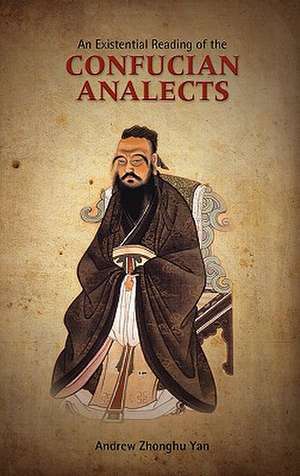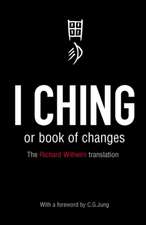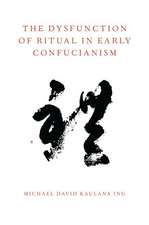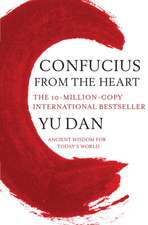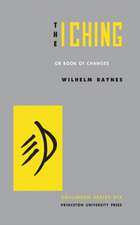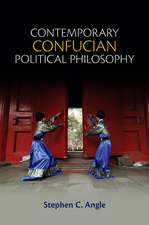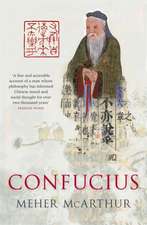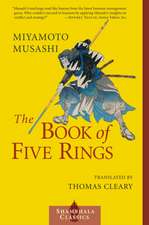An Existential Reading of the Confucian Analects: Culture, Literature, & Religion in Greater China
Autor Andrew Zhonghu Yanen Limba Engleză Hardback – 31 mai 2011
Preț: 593.94 lei
Preț vechi: 645.59 lei
-8% Nou
Puncte Express: 891
Preț estimativ în valută:
113.66€ • 117.99$ • 94.78£
113.66€ • 117.99$ • 94.78£
Carte tipărită la comandă
Livrare economică 22 martie-05 aprilie
Preluare comenzi: 021 569.72.76
Specificații
ISBN-13: 9781604977530
ISBN-10: 1604977531
Pagini: 214
Dimensiuni: 152 x 229 x 16 mm
Greutate: 0.49 kg
Ediția:New.
Editura: Cambria Press
Seria Culture, Literature, & Religion in Greater China
ISBN-10: 1604977531
Pagini: 214
Dimensiuni: 152 x 229 x 16 mm
Greutate: 0.49 kg
Ediția:New.
Editura: Cambria Press
Seria Culture, Literature, & Religion in Greater China
